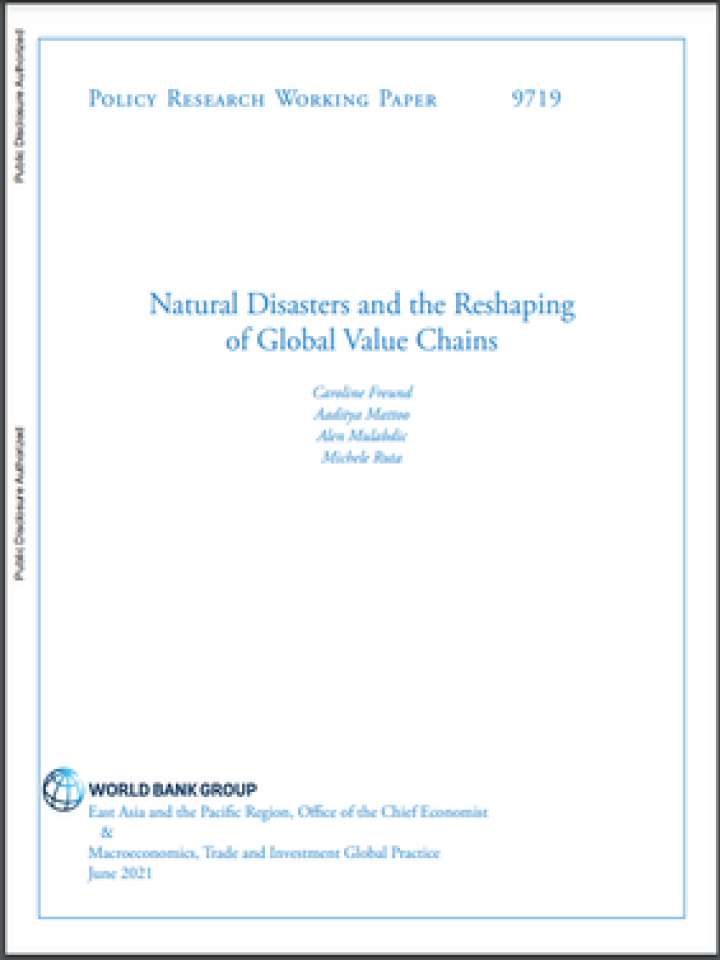Natural disasters and the reshaping of global value chains
To understand the longer term consequences of natural disasters for global value chains, this paper examines trade in the automobile and electronic sectors after the 2011 earthquake in Japan. COVID-19 has exposed the risks associated with the interconnected nature of global trade. The reliance on foreign input producers can lead to a disruption of production when source countries experience a negative shock. To understand how firms behave when faced with new risks, this study examines the 2011 earthquake in Japan
Contrary to widespread expectations, the analysis shows that the shock did not lead to reshoring, nearshoring, or diversification; and trade in intermediate products was disrupted less than trade in final goods. Imports did shift to new suppliers, especially where dependence on Japan was greater. But production relocated to developing countries rather than to other top exporters. Despite important differences, the observed pattern of switching may be relevant to disasters like the COVID-19 pandemic.
Explore further

